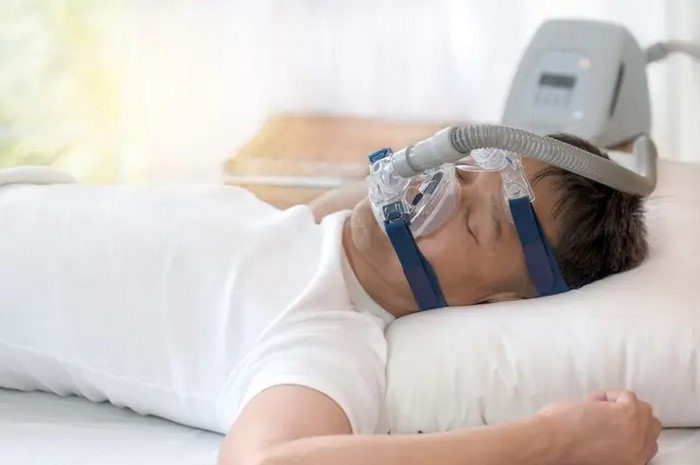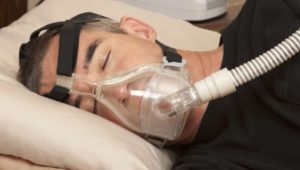A heart-healthy diet and regular exercise are necessary for cardiovascular and overall health. Getting good quality sleep on a nightly basis is just as important. Unfortunately, many people don’t get enough quality sleep, whether due to a hectic schedule, certain health conditions, or bad bedtime routines. There are also those who get a good 7-8 hours of sleep, but it’s low-quality sleep. Snoring and sleep apnea could also be a factor. But how serious is this condition? What happens if sleep apnea is left untreated?
What you should know about sleep apnea
Snoring is the loud hoarse sound that a person makes when the roof of the mouth (palate tissues) and the airways relax too much and collapse (whether completely or partially). This narrows the airways, causing the air from you inhale and exhale to vibrate in the airways, making loud, harsh, and hoarse sounds. In other words, snoring is simply caused by a turbulent flow of air in your airways.
Snoring can be caused by a lot of things, such as the sleeping stage, sleep deprivation, use of alcohol, certain medications, and can even be genetic.
While occasional snoring is harmless, especially if you have a cold or flu, loud and frequent snoring that disrupts your natural breathing pattern is a potentially dangerous sleep disorder. These disruptions are pauses of 10 seconds (or more) at a time in breathing that happens hundreds of times a night. The brain determines what is going on and acts by jolting your body to try to wake you up to resume normal breathing. This repetitive disruption in breathing during sleep causes a long list of health concerns, which sometimes can be extremely dangerous.
Why and How Sleep Apnea Becomes Dangerous
If left undiagnosed and untreated, chronic sleep apnea takes a toll on the body, leading to several health issues, including cognitive, emotional, and even behavioral problems. A 2015 research study in Reviews in Endocrine and Metabolic Disorder shows strong evidence that links sleep apnea to systemic inflammation.
Many health conditions are caused by the loss of oxygen and the buildup of carbon dioxide in the body.
Those pauses of breathing during sleep cause a drop in oxygen levels in the blood. This is what triggers the brain’s fight or flight response (increase in blood pressure and heart rate), forcing the body to wake up slightly by jolting. As a result, the snorer gasps for air and starts breathing again. You may not notice these disruptions happening while asleep. But as the cycle continues at an accelerated rate, you will experience increased blood pressure and inflammation throughout your body, even during sleep. These are the exact opposite of what the benefits of sleep should be.
The nervous system’s over activation during sleep is the body’s attempt to save itself and increase the oxygen level of the blood by forcing your body to breathe again.
As the inflammation builds up in the body, arteries build-up (atherosclerosis) too, causing a strain on the cardiovascular system, and increasing your risk of blood clots and cell damage, which are dangerous conditions that can lead to heart attacks and strokes. Moreover, longtime chronic inflammation damages the pancreas, leading to type 2 diabetes.
Other health risks associated with sleep apnea include:
- Metabolic syndrome ─ abnormally high cholesterol levels, excess body fat, and high blood sugar levels, all of which increase your risk of diabetes and heart diseases
- Heart disease ─ heart attacks, heart failure, and atrial fibrillation are strongly linked to sleep apnea
- Glaucoma ─ decreased oxygen in the blood means less oxygen is delivered to the optic nerve during sleep, resulting in nerve damage and increased risk of glaucoma
- Asthma ─ sleep apnea is common among people with asthma
- Liver damage ─ lack of oxygen in blood caused by sleep apnea worsens the nonalcoholic fatty liver disease, while the severity of the liver disease is also linked to the severity of sleep apnea
- Pregnancy complications – sleep apnea increases the risk of pregnancy complications such as gestational high blood pressure, gestational diabetes, and preeclampsia
Moreover, not getting enough sleep on a nightly basis alters the body’s hormonal cycles. As a result, long-term untreated sleep apnea results in hormonal-related problems such as:
- Weight gain and obesity
- Hypothyroidism
- Gastroesophageal reflux disease (GERD)
- Heartburn
- Increased risk of cancer
Weight gain, in particular, can exacerbate the symptoms of sleep apnea and problems become an endless cycle of dangerous health problems.
Cognitive and Mental Health Problems Related to Sleep Apnea
Chronic sleep apnea, if left untreated, also puts you at higher risk of behavioral, cognitive, and mental health complications. Since the condition keeps you from getting good and restorative sleep, it can easily affect your energy and mood for the following day. With that said, long-term sleep apnea leads to:
- Brain fog
- Daytime sleepiness and fatigue
- Irritability
- Increase in stress
- Attention and concentration problems
- Memory problems
- Decreased sex drive
- Poor school or work performance
- Anxiety, or even depression
How sleep apnea exposes you to risks even when you are awake
Apart from the physical, mental, and emotional complications, chronic sleep apnea can be considered a public health risk.
Untreated, chronic sleep apnea leads to daytime sleepiness. This poses a danger to people working driving or operating heavy machinery that requires undivided attention and immense concentration. Many workplace accidents and vehicular crashes are a result of daytime fatigue.
Many train crashes are linked to train engineers falling asleep on the job. The same problem is seen among long-haul truck drivers too.
Seek professional help
As you can see, a lot of bad things can happen to your health and overall wellbeing if you leave sleep apnea undiagnosed and untreated.
Although many health risks have been linked to chronic snoring, it is still unclear whether having sleep apnea puts you at higher risk of these health problems or if the sleep apnea is a result of these underlying health conditions.
Regardless of the causes, the list of the health conditions associated with sleep apnea alone should be enough to encourage you to seek professional medical help.
Treat your sleep apnea and get the good night’s sleep that you need to start living healthily.


























